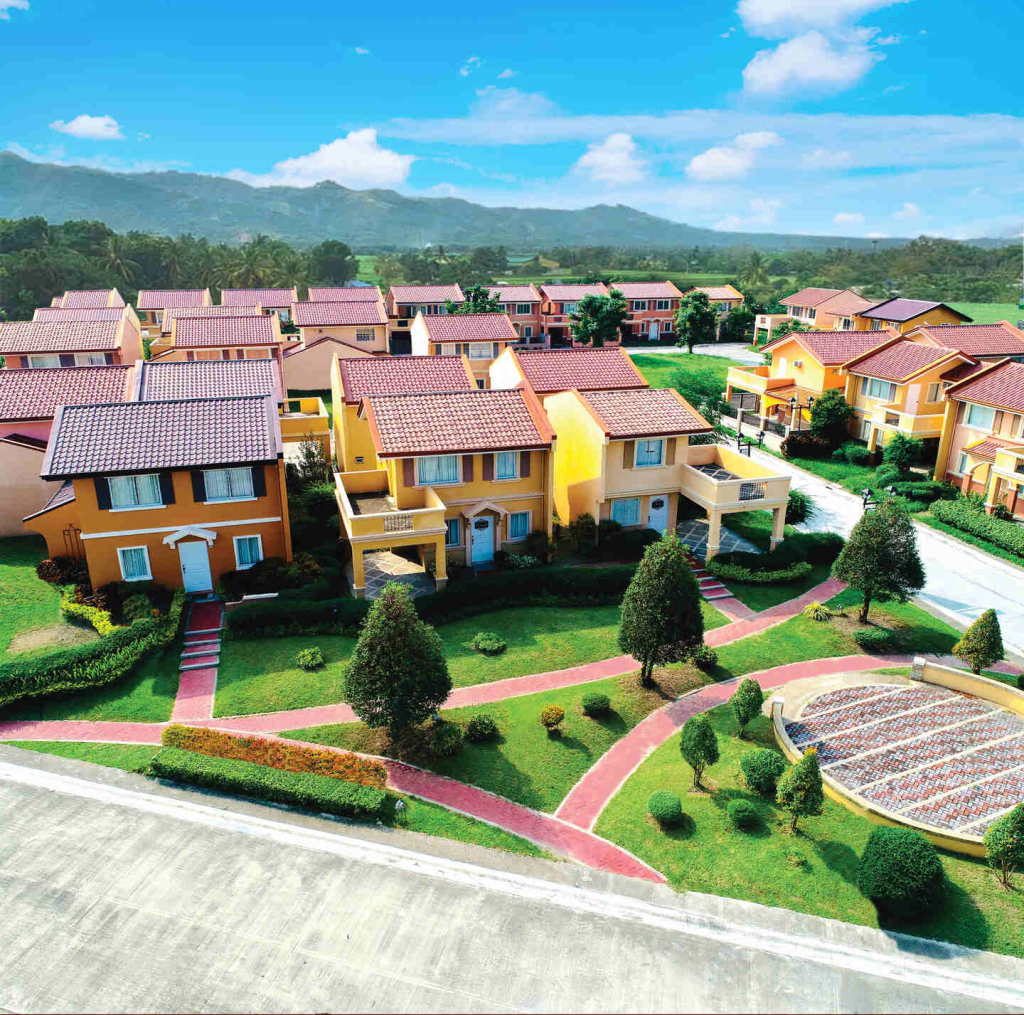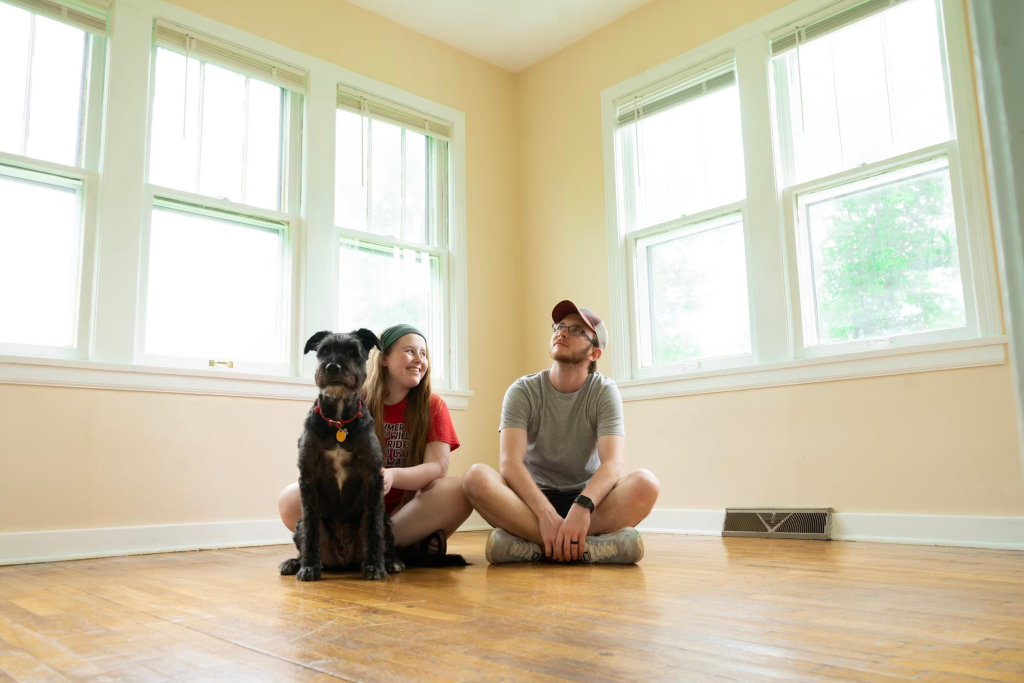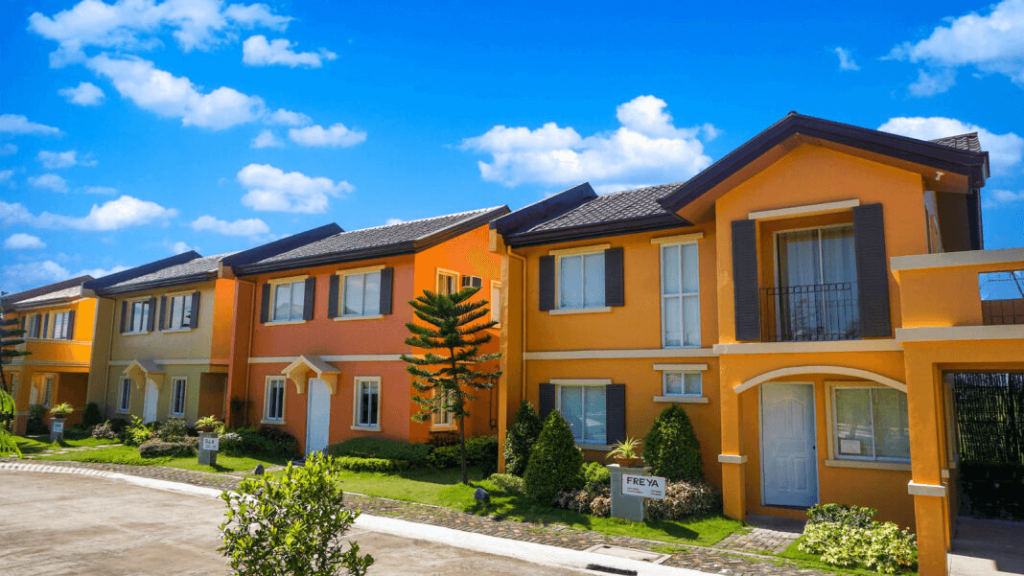
House hunting can be a thrilling yet overwhelming experience. While the aesthetics of a home can be captivating, there are many crucial factors to consider before making an offer.
This house hunting checklist and comprehensive guide will equip you to navigate the process and find a property that perfectly aligns with your needs, not just your dreams.
Let’s delve into the key considerations that go beyond the number of bedrooms or the size of the yard.
Location is king
They say it all for a reason: location is the single most important factor in the house-buying process, apart from the other must haves. While a charming kitchen or spacious backyard can be tempting, a home’s location sets the stage for your entire lifestyle.
This is why your very first step in house hunting should focus on finding the perfect neighborhood.
Here’s where location truly becomes king. Consider your daily routine: how close do you want to be to your workplace? Are there schools in the area if you have children, or are you planning to start a family in the future?
Think about your desired commute time and access to essential amenities like parks, shopping centers, and public transportation. The overall vibe of the neighborhood matters too. Is it quiet and family-friendly, or bustling with nightlife? Does it have a strong sense of community?
These are just some of the questions to ask yourself when house shopping and evaluating potential locations. While online resources can provide a starting point, don’t underestimate the value of firsthand experience.
Driving through and explore neighborhoods at different times of day can reveal valuable insights into noise levels, traffic patterns, and overall atmosphere, giving you a complete picture of the particular house you are eyeing, as well as the overall vibe of the community.
The Site
In addition to finding the right location, the property’s specific characteristics shouldn’t be overlooked in the house-hunting process.
This is where keen observation and an understanding of your lifestyle needs come into play. The following are site considerations you need to consider before finally purchasing your new home.
For example, if your dream home sits on a hill, revel in the potential for breathtaking views and a unique living experience.
However, factor in the number of stairs you’ll encounter – both inside and outside the house. Does the property offer a desirable walkout basement, or will you be constantly navigating steps?
Privacy and Proximity
Pay close attention to the positioning of neighboring houses. Do their windows directly overlook yours, potentially compromising your privacy? Conversely, are the lots spaced far enough apart to offer a sense of seclusion?
Outdoor Enjoyment
Consider how you plan to utilize the yard. Is it a spacious haven for children’s play or backyard barbecues? Is there ample room for gardening enthusiasts to cultivate their green thumbs? For pet owners or if you intend to take care of one, ensure the yard is secure and allows for safe exercise. The space should be able to accommodate future pets.
Accessibility
Evaluate the property’s access in terms of both safety and convenience. Is the driveway excessively steep, potentially creating challenges in winter weather? Are there a multitude of stairs leading to the front door, which might pose mobility concerns for some.
The Neighborhood

The adage rings true: it’s not just about the house; it’s about the neighborhood. After all, your home is where you live, but your neighborhood is where you’ll experience the rhythm of daily life.
This is why a crucial step in the house-hunting process involves going beyond the curb appeal and truly understanding the character of the surrounding community.
To get a well-rounded picture, take the time to drive through the neighborhood at different times, both on weekdays and weekends as you start house hunting. This will reveal the overall activity level, noise patterns, and general vibe.
Look for signs that reflect a community that takes pride in its environment, such as well-maintained homes and tidy yards. Conversely, be wary of signs of neglect like abandoned cars or overflowing trash cans.
Safety and security are also paramount in your house search. Look for children playing freely in the yards, indicative of a family-friendly atmosphere. Is there noticeable foot traffic from people walking, running, or biking, suggesting a community that embraces an active lifestyle?
The community however extends beyond the house and environment. The community also means the immediate vicinity of the village. This factor includes proximity to transportation hubs, nearby entertainment areas, dining options and coffee shop, local schools, grocery stores, market, churches and other places of convenience.
Access to these places determines property value within the competitive market. It can impact on the asking price of the house, the down payment as well as mortgage payment. One ideal way of finding out all the information is to seek the advice of real estate professionals, attend open house,
Residential Appeal
The aesthetics of a home should reflect your personality, not just current trends. Imagine your ideal lifestyle: do you crave a carefree existence filled with casual gatherings?
Then, a formal Victorian with its ornate details and high-maintenance upkeep might not be the best fit. Perhaps a more contemporary and streamlined design that allows for easy entertaining would better reflect you.
As you explore potential properties, extend your evaluation beyond the interior layout. Consider the exterior characteristics as well. Brick homes offer a classic look and require less frequent maintenance compared to other materials, but they might not be ideal in earthquake-prone areas where stucco or other flexible exteriors are preferred.
Ensure the roof appears in good condition and free of missing shingles or signs of leaks. Scrutinize the landscaping – is it appealing and manageable for your lifestyle?
Finally, check the sidewalks leading to the home. Are they well-maintained and free of tripping hazards? These seemingly minor details can significantly impact your day-to-day living experience.
Other house-hunting tips

While finding your dream home is exciting, it’s crucial to ensure it aligns with your current and future needs, not just your initial desires. Let’s delve into some key considerations beyond the number of bedrooms or the yard size.
Find yourself a real estate agent
The house hunt can be an exciting yet overwhelming journey. Imagine navigating a maze of properties, paperwork, and decisions – that’s where a reliable real estate agent steps in as your trusted advisor. Think of them as your personal GPS, guiding you through the complexities of the process and ensuring you find a home that perfectly aligns with your needs and dreams.
Real estate agents can be invaluable allies throughout your search. Their expertise in the local market and access to multiple listing services (MLS) will expose you to a wider range of property listings that meet your criteria.
They can also guide you through paperwork, recommend reputable mortgage lenders to get pre-approved, and connect you with qualified inspectors and other professionals.
Leveraging Expertise
A reliable real estate agent can be your sounding board throughout the house hunt. They can leverage multiple listing services (MLS) to find properties that match your ideal layout and square footage needs.
National associations like the National Association of Realtors (NAR) offer resources for home buyers, including tips on how to find a reliable real estate agent.
The Dimensions and the Layout
Right-sizing
Don’t get swept away by square footage alone. When considering a home’s dimensions and layout, think realistically about how you’ll utilize the space.
If you live alone, do you truly need four bedrooms and four bathrooms? While a large home might offer the allure of dedicated spaces for hobbies or a home office, remember it also translates to higher utility bills, property taxes, and furnishing expenses.
Future-Proofing
Consider how your needs might evolve over time. Will a spare room serve as a future nursery or a guest room? If you anticipate adding on later, consult an architect to ensure your plans comply with zoning regulations and optimize lot utilization.
The Kitchen
When it comes to the kitchen, always remember that Functionality comes First. If you’re a culinary enthusiast, prioritize a functional kitchen.
While a major remodel can be expensive, consider the potential for cosmetic updates like replacing cabinet doors and countertops. Remember, appliances are typically easier to replace down the line.
Closets and Storage Areas
Storage space is a crucial consideration, especially in older homes that often lack built-in closets. If you have extensive collections or seasonal items, factor in their storage needs during your house hunt.
Newer homes generally offer more storage options, but adding them later might require sacrificing some living space.
Window Treatments and Lighting
As you evaluate potential properties during your house hunt, consider both the natural and artificial light sources. If you enjoy bright and airy spaces, prioritize homes with south-facing windows that allow for ample natural light.
Conversely, if privacy is a major concern, a home with a more balanced distribution of natural light may be preferable. Ensure the existing electrical outlets and fixtures are sufficient for your needs.
While recessed lighting or decorative chandeliers can be added later, having them pre-installed can improve your initial move-in experience and the overall functionality of the space.
By carefully assessing the lighting situation in each home, you can ensure it aligns with your lifestyle and contributes to a comfortable and inviting living environment.
The Smaller Details
Sometimes, seemingly minor details like moldings, hardware, or a fireplace can elevate a home’s aesthetics. If these features are essential for you, look for them during your house hunt or factor in the cost of adding them later.
If you keep these specific characteristics of a home in mind, your house hunting will be more fruitful, and you’ll almost certainly find the home of your dreams.
Understanding Your Needs

Before you begin house hunting, carefully considering your lifestyle needs and budget is crucial. How much space do you require? Do you prioritize a large yard for entertaining or a dedicated home office space?
Knowing your priorities will help you narrow down your search and avoid wasting time on properties that don’t align with your needs.
The Importance of Inspections
Don’t be tempted to skip a professional home inspection. This crucial step can uncover potential problems with the property, saving you from costly repairs down the line.
Be open to possibilities
Open houses can be a great way to get a feel for the layout and flow of a property. However, don’t be afraid to look beyond staged perfection. Focus on the home’s potential and imagine how you can personalize the space.
Negotiate with Confidence
Once you find a property you love, be prepared to negotiate the offer price. Real estate agents can advise you on a fair price based on market comps and property conditions.
The Final Stretch
The home buying process involves various steps, like securing financing with a pre-approved mortgage from your chosen mortgage lender, appraisals, and title searches. Stay organized and communicate effectively with your real estate agent and other professionals involved to ensure a smooth closing.
Find your Dream Home in Camella Properties for Sale

When deciding on a location for your ideal home, one piece of advice is to choose one that provides easy access to the places they frequent the most (work, school, shopping, friends, and family).
Consider properties that are close to schools, as a long drive can deplete your children’s energy and leave them unable to study or play when they return home. Apart from benefiting children, proximity to schools increases the value of the real estate.
Examining the location before purchase can help you avoid issues getting out of the neighborhood and onto a main road, as well as an excessively long commute. The most critical factor to consider when purchasing a property is whether the neighborhood or location is safe to live in.
Camella has the ideal house-and-lot or condominium for sale in the Philippines for young families and first-time homebuyers. Through its strategic locations throughout the country, you will have the opportunity to experience a holistic community unlike any other.
/


